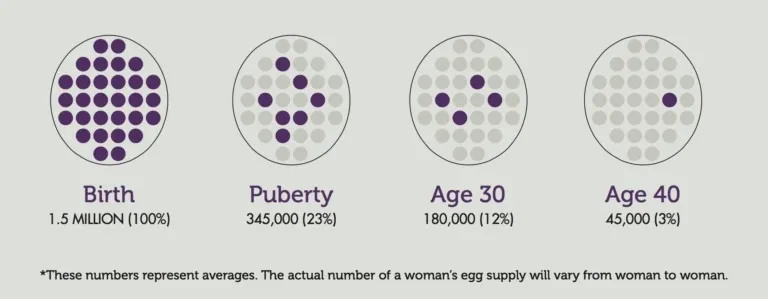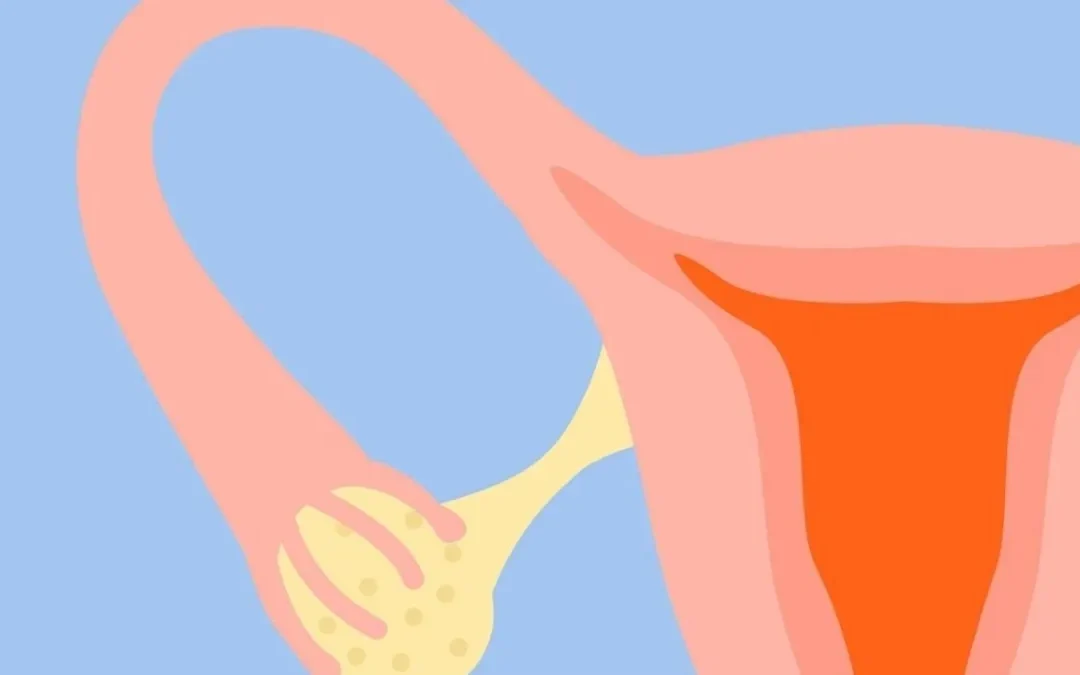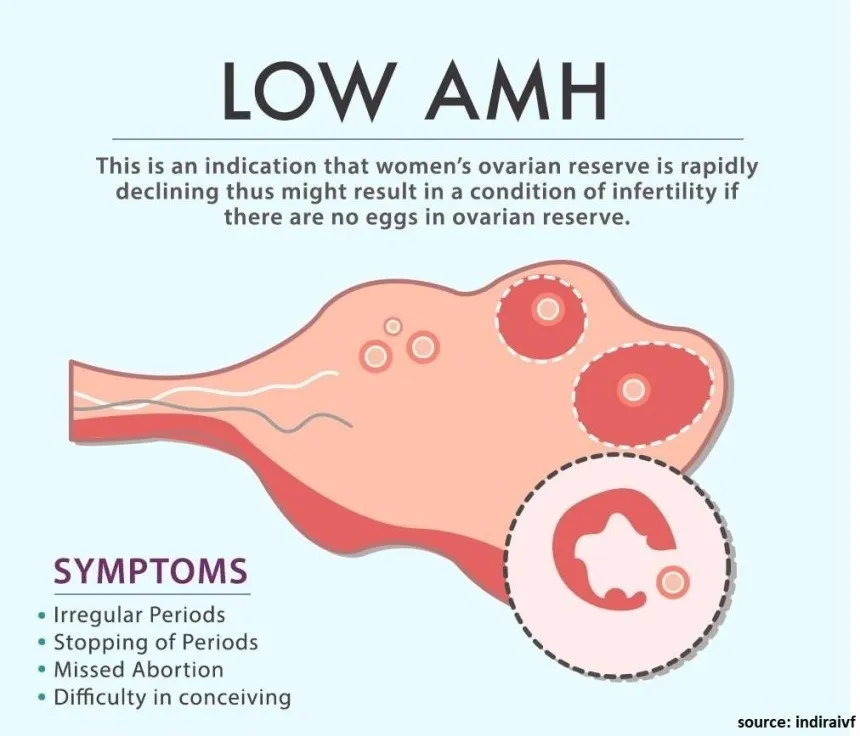Diminished ovarian reserve is a common condition in Ahmedabad. It affects females of an age. About ten percent of females in Ahmedabad have this condition.
To achieve a successful pregnancy, many women with diminished ovarian reserve consult their IVF doctor in Ahmedabad. It is also one of the best procedures available to get pregnant with this condition.
Before discussing more diminished ovarian reserve, let us first understand what it means.
What is diminished ovarian reserve?
The term “ovarian reserve” means your egg’s number and quality, also called oocytes. When you have diminished ovarian reserve, this means that your egg’s quality and number are less than expected for your age.
So, let us understand what the average egg count is by age.
What is the average egg count by age?

The “average” egg’s number in your ovarian reserve is based on age.
You are born with all the eggs you will ever have. These eggs reserve starts reducing as time passes.
As per research, below are the average number of eggs you have at every age:
- Twenty weeks of gestation: 6 to 7 million oocytes
- Birth: 1 to 2 million oocytes
- Puberty: 300,000 to 500,000 oocytes
- Around age 37: roughly 25,000 oocytes
- Around age 51: the average age of menopause is around 1,000 oocytes
When people with diminished ovarian reserve have lesser eggs than people without, there is no clear consensus over the average amount of eggs for people with this condition.
As per research, hormone levels generally define diminished ovarian reserve and not the egg’s number in the ovarian reserve, making the condition’s definition quite confusing.
Since blood tests diagnosis diminished ovarian reserve to measure hormone levels and not counting eggs, it is difficult to find the average amount of eggs of a person who has the condition.
Now that you understand the number of eggs in a normal female let us move to the causes of diminished ovarian reserve.
Causes of diminished ovarian reserve
Ageing naturally decreases your egg reserves. However, some other factors can bring diminished ovarian reserve. These are:
- Tubal disease
- Endometriosis
- Prior ovarian surgery
- Autoimmune disorders
- Mumps Chemotherapy
- Radiation therapy
- Smoking
- Pelvic infection
- Genetic abnormalities like fragile x syndrome
However, sometimes there is no known cause for the condition.
Symptoms of diminished ovarian reserve
There are no recognizable signs of diminished ovarian reserve. Still, people having the condition may face any of the below symptoms:
- Difficulty becoming pregnant
- Absent or late menstrual periods
- Lesser menstrual cycles than average, with the average being twenty-eight days
- Heavy menstrual flow
- Miscarriage
Still, such signs are not always there. This is the reason it is essential to consult your fertility specialist if you are having problems conceiving.
Diagnosis of diminished ovarian reserve
As per research, it is essential to get fertility testing initially if:
- You are trying to conceive but found no success
- You have a history of painful or irregular periods
- Pelvic inflammatory disease
- Recurring miscarriages
- Prior cancer treatment
- Endometriosis
Early diagnosis can give you a good chance of successful treatment.
If you are below thirty-five years of age, you need to visit a specialist if you have been trying to conceive for a year.
If you are above thirty-five, visit a specialist after six months of trying to conceive. If you are above forty and trying to conceive, it is best to speak with your specialist immediately.
Diminished ovarian reserve is diagnosed with blood tests that measure anti-Müllerian hormone (AMH) and follicle-stimulating hormone (FSH) levels. Below are hormones that have a significant role in reproduction and menstruation.
It is natural for FSH levels to increase and AMH levels to fall as you grow older, so it is essential to examine the hormone levels against your age baseline.
People with a diminished ovarian reserve will have more FSH levels and fewer AMH levels than others of their age.
Treatment of diminished ovarian reserve
You can still become pregnant with a diminished ovarian reserve. As per research, thirty-three percent of people with a diminished ovarian reserve can get pregnant with their eggs after getting treatment.
Yet, the research recommends that early diagnosis is essential, as it provides you with a good chance of conceiving.
Among the most given treatments for diminished ovarian reserve are supplements like dehydroepiandrosterone (DHEA), a mild androgen. DHEA is created naturally in the body, yet a level of DHEA reduces with age. DHEA supplements can enhance fertility.
Other than DHEA supplements, there are some methods to become pregnant if you have the condition. If the diminished ovarian reserve is soon diagnosed, it is possible to freeze healthy eggs for future use. Your specialist may even recommend trying IVF right away.
Another choice to get pregnant is with donor eggs. Eggs will be received from a donor. These eggs will be fertilized using IVF and implanted in your uterus. You can visit your IVF centre in Ahmedabad for more information on this procedure.
The treatment you get depends on your condition, so it is essential to discuss every option with a fertility doctor.
Takeaway
Being told that you have a diminished ovarian reserve can be discouraging. However, it is possible to become pregnant with your eggs or donor eggs when you have the condition.
If you feel you have a diminished ovarian reserve or have problems with conceiving, consult your fertility specialist.



